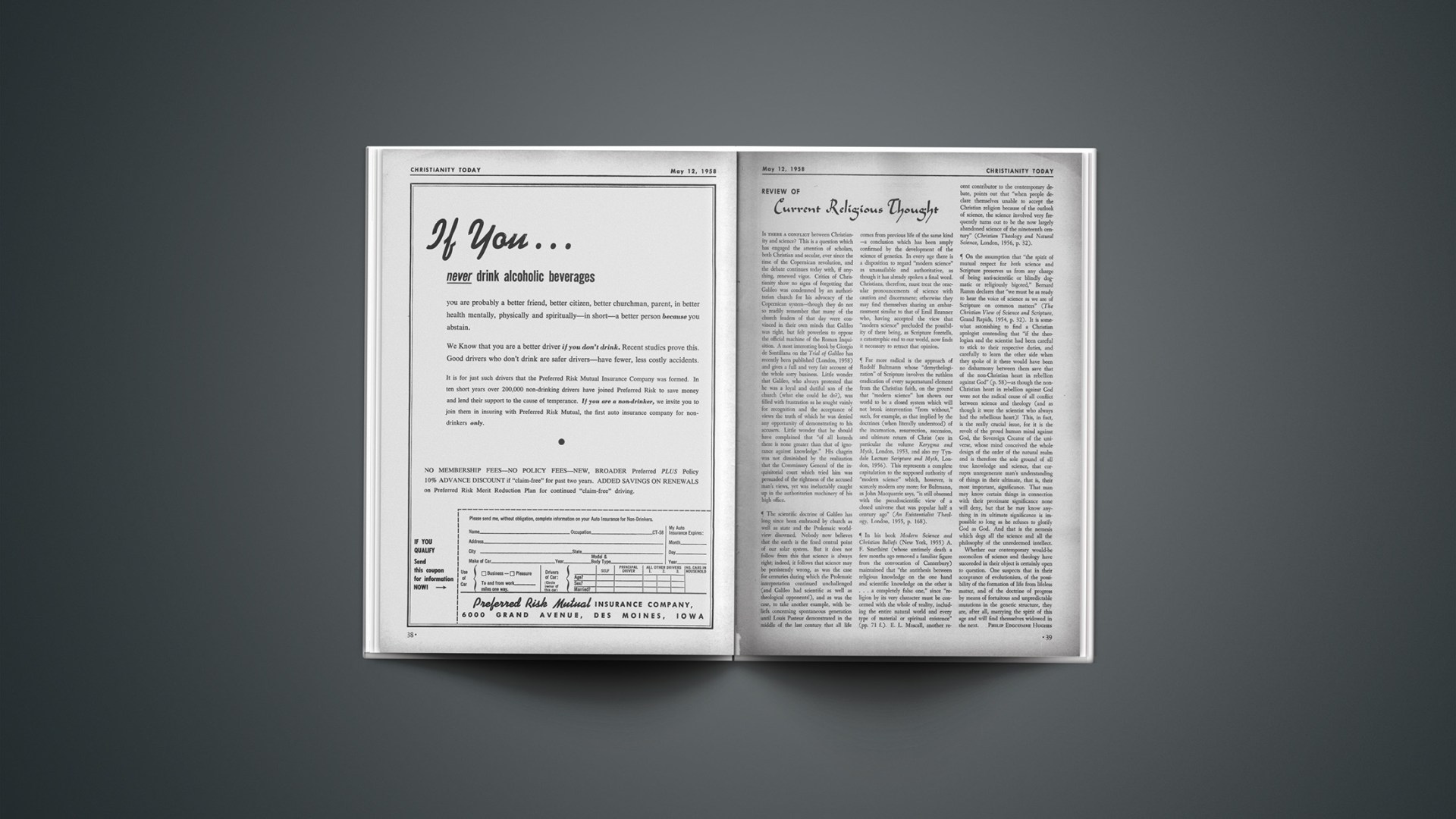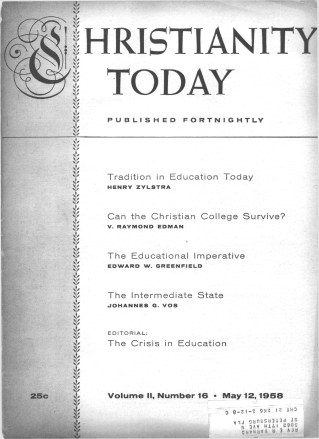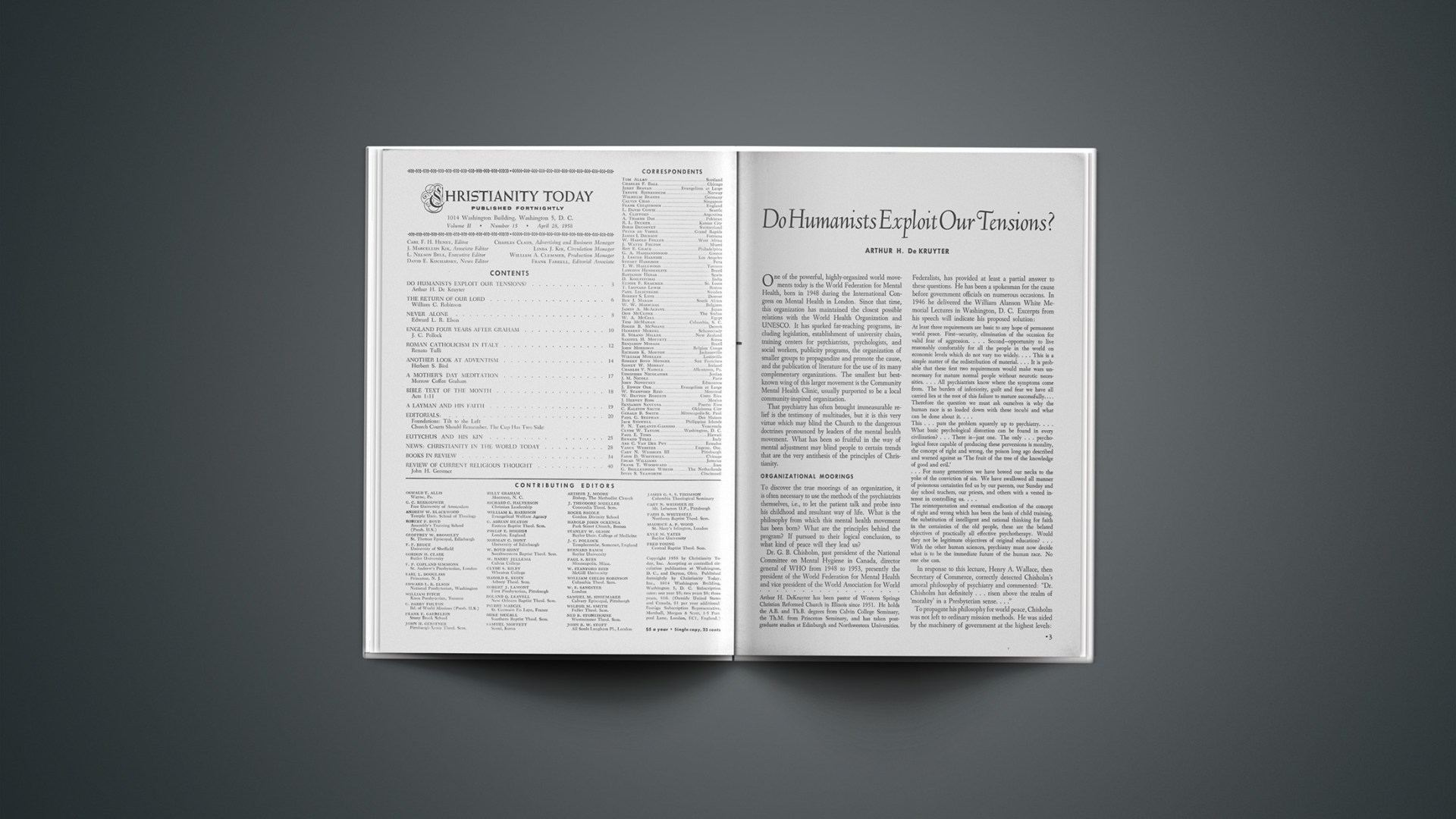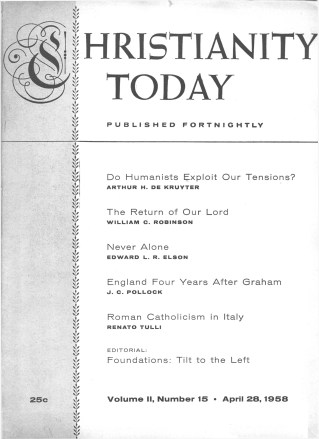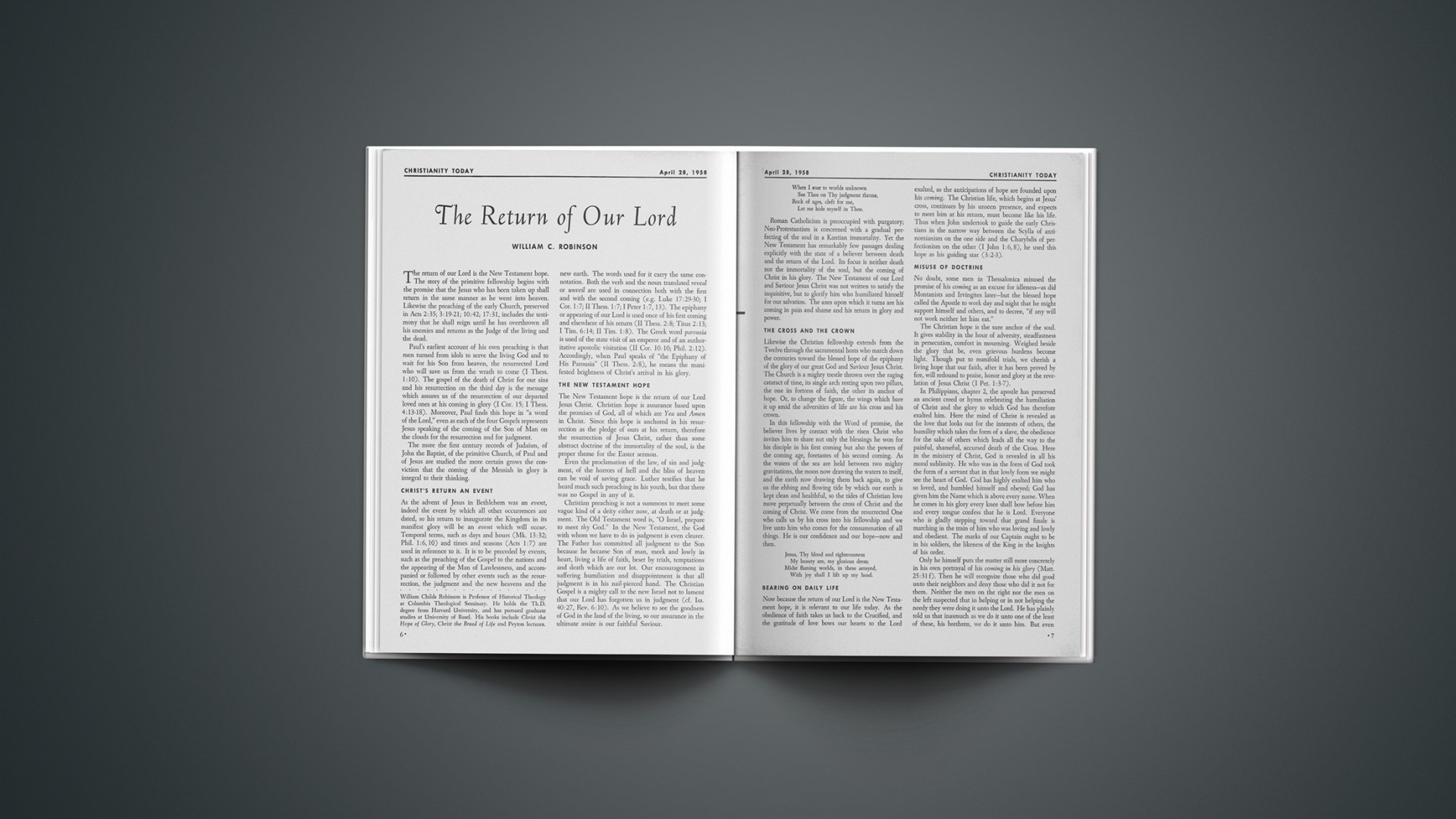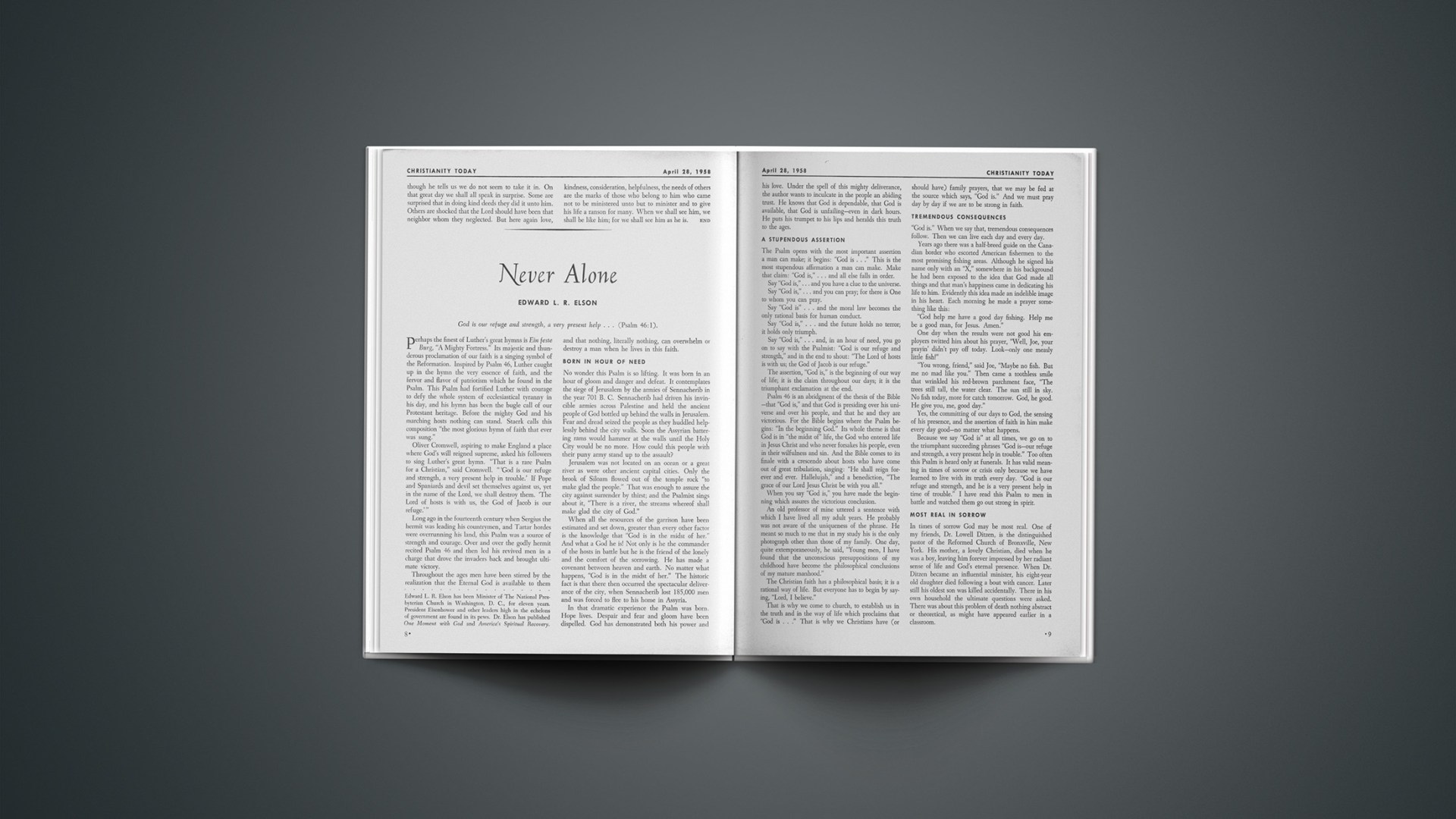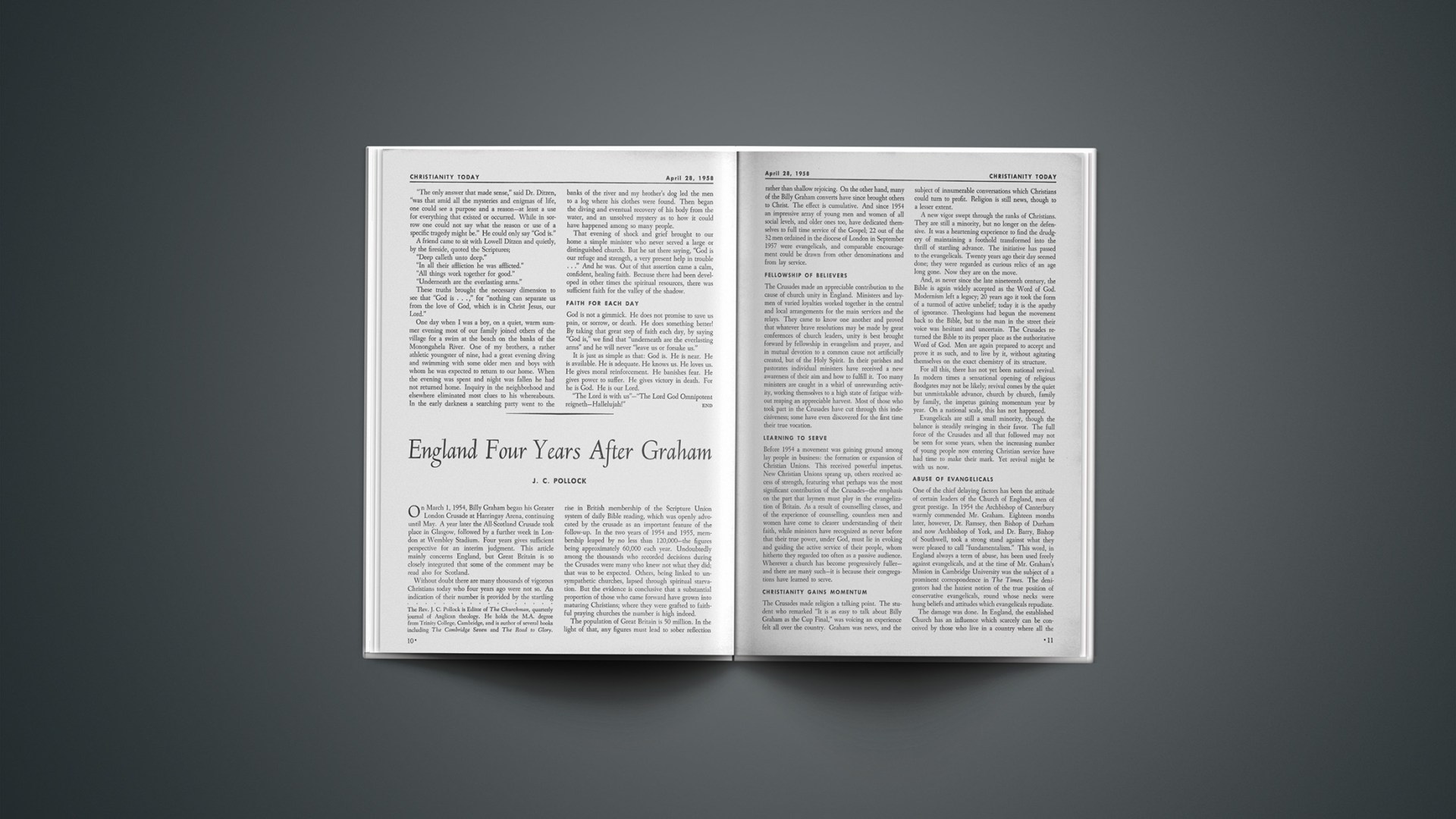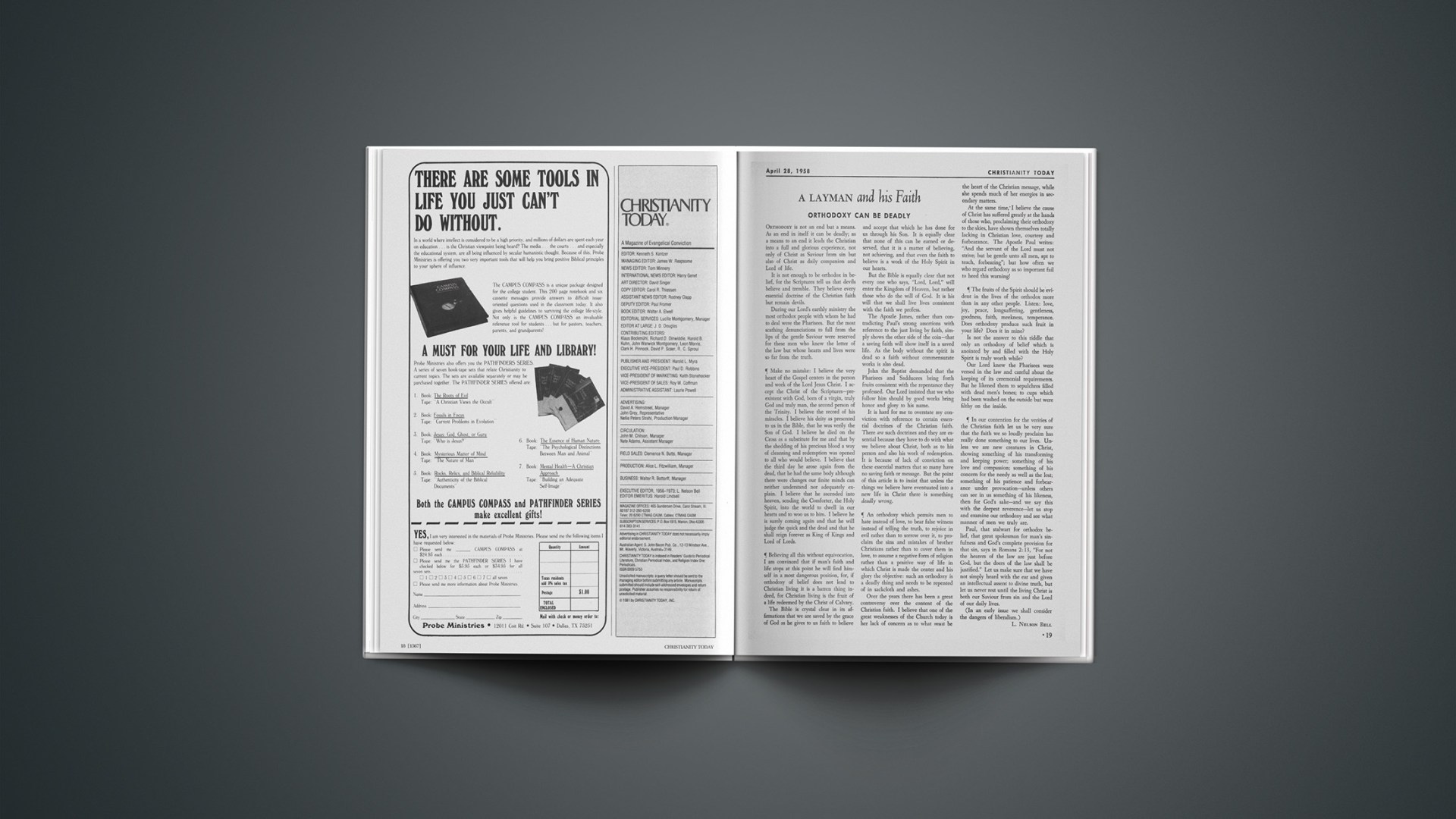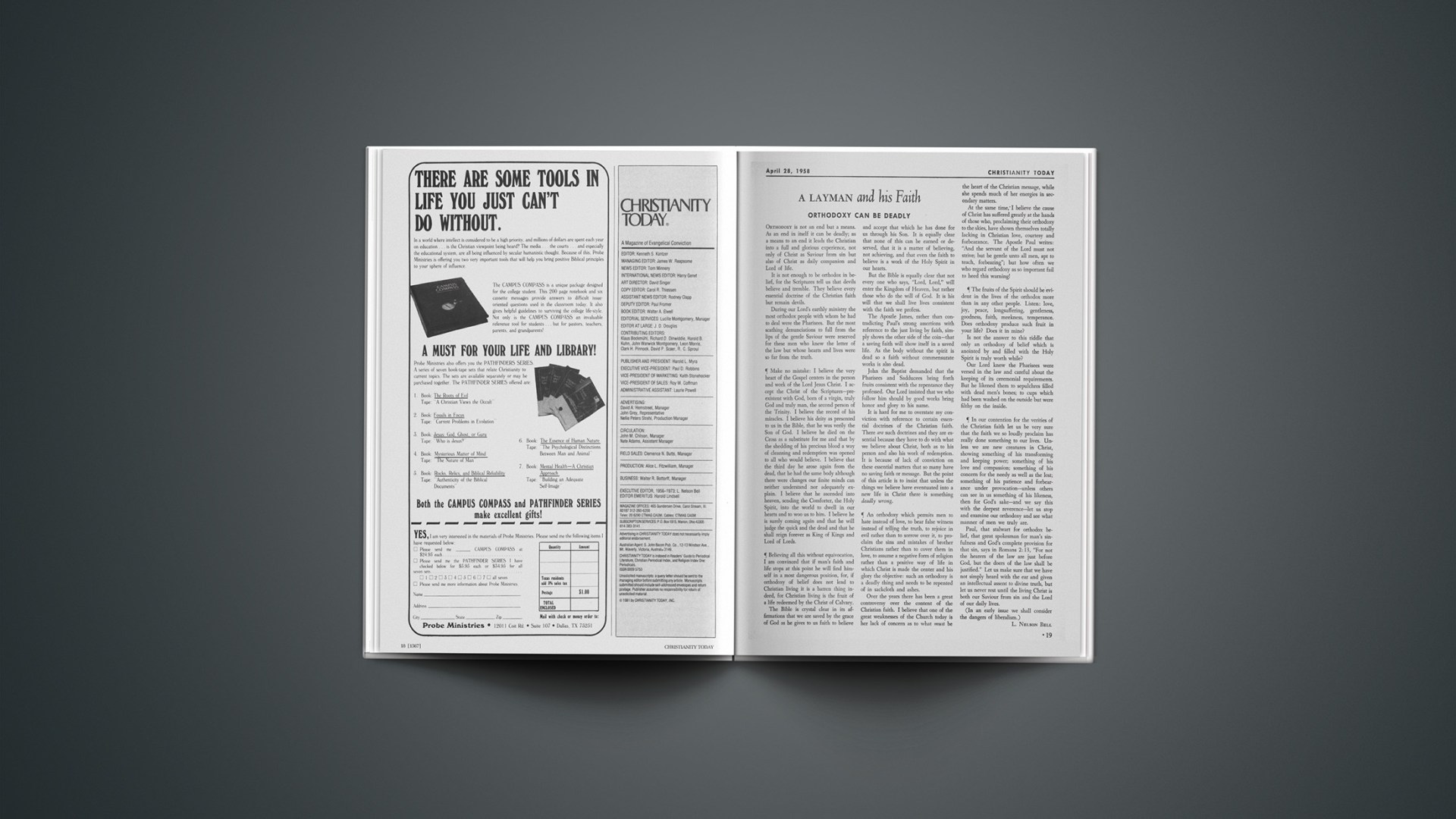Is there A conflict between Christianity and science? This is a question which has engaged the attention of scholars, both Christian and secular, ever since the time of the Copernican revolution, and the debate continues today with, if anything, renewed vigor. Critics of Christianity show no signs of forgetting that Galileo was condemned by an authoritarian church for his advocacy of the Copernican system—though they do not so readily remember that many of the church leaders of that day were convinced in their own minds that Galileo was right, but felt powerless to oppose the official machine of the Roman Inquisition. A most interesting book by Giorgio de Santillana on the Trial of Galileo has recently been published (London, 1958) and gives a full and very fair account of the whole sorry business. Little wonder that Galileo, who always protested that he was a loyal and dutiful son of the church (what else could he do?), was filled with frustration as he sought vainly for recognition and the acceptance of views the truth of which he was denied any opportunity of demonstrating to his accusers. Little wonder that he should have complained that “of all hatreds there is none greater than that of ignorance against knowledge.” His chagrin was not diminished by the realization that the Commissary General of the inquisitorial court which tried him was persuaded of the rightness of the accused man’s views, yet was ineluctably caught up in the authoritarian machinery of his high office.
The scientific doctrine of Galileo has long since been embraced by church as well as state and the Ptolemaic world-view disowned. Nobody now believes that the earth is the fixed central point of our solar system. But it does not follow from this that science is always right; indeed, it follows that science may be persistently wrong, as was the case for centuries during which the Ptolemaic interpretation continued unchallenged (and Galileo had scientific as well as theological opponents!), and as was the case, to take another example, with beliefs concerning spontaneous generation until Louis Pasteur demonstrated in the middle of the last century that all life comes from previous life of the same kind—a conclusion which has been amply confirmed by the development of the science of genetics. In every age there is a disposition to regard “modern science” as unassailable and authoritative, as though it has already spoken a final word. Christians, therefore, must treat the oracular pronouncements of science with caution and discernment; otherwise they may find themselves sharing an embarrassment similar to that of Emil Brunner who, having accepted the view that “modern science” precluded the possibility of there being, as Scripture foretells, a catastrophic end to our world, now finds it necessary to retract that opinion.
Far more radical is the approach of Rudolf Bultmann whose “demythologization” of Scripture involves the ruthless eradication of every supernatural element from the Christian faith, on the ground that “modern science” has shown our world to be a closed system which will not brook intervention “from without,” such, for example, as that implied by the doctrines (when literally understood) of the incarnation, resurrection, ascension, and ultimate return of Christ (see in particular the volume Kerygma and Myth, London, 1953, and also my Tyndale Lecture Scripture and Myth, London, 1956). This represents a complete capitulation to the supposed authority of “modern science” which, however, is scarcely modern any more; for Bultmann, as John Macquarrie says, “is still obsessed with the pseudoscientific view of a closed universe that was popular half a century ago” (An Existentialist Theology, London, 1955, p. 168).
In his book Modern Science and Christian Beliefs (New York, 1955) A. F. Smethirst (whose untimely death a few months ago removed a familiar figure from the convocation of Canterbury) maintained that “the antithesis between religious knowledge on the one hand and scientific knowledge on the other is … a completely false one,” since “religion by its very character must be concerned with the whole of reality, including the entire natural world and every type of material or spiritual existence” (pp. 71 f.). E. L. Mascall, another recent contributor to the contemporary debate, points out that “when people declare themselves unable to accept the Christian religion because of the outlook of science, the science involved very frequently turns out to be the now largely abandoned science of the nineteenth century” (Christian Theology and Natural Science, London, 1956, p. 32).
On the assumption that “the spirit of mutual respect for both science and Scripture preserves us from any charge of being anti-scientific or blindly dogmatic or religiously bigoted,” Bernard Ramm declares that “we must be as ready to hear the voice of science as we are of Scripture on common matters” (The Christian View of Science and Scripture, Grand Rapids, 1954, p. 32). It is somewhat astonishing to find a Christian apologist contending that “if the theologian and the scientist had been careful to stick to their respective duties, and carefully to learn the other side when they spoke of it there would have been no disharmony between them save that of the non-Christian heart in rebellion against God” (p. 58)—as though the non-Christian heart in rebellion against God were not the radical cause of all conflict between science and theology (and as though it were the scientist who always had the rebellious heart)! This, in fact, is the really crucial issue, for it is the revolt of the proud human mind against God, the Sovereign Creator of the universe, whose mind conceived the whole design of the order of the natural realm and is therefore the sole ground of all true knowledge and science, that corrupts unregenerate man’s understanding of things in their ultimate, that is, their most important, significance. That man may know certain things in connection with their proximate significance none will deny, but that he may know anything in its ultimate significance is impossible so long as he refuses to glorify God as God. And that is the nemesis which dogs all the science and all the philosophy of the unredeemed intellect.
Whether our contemporary would-be reconcilers of science and theology have succeeded in their object is certainly open to question. One suspects that in their acceptance of evolutionism, of the possibility of the formation of life from lifeless matter, and of the doctrine of progress by means of fortuitous and unpredictable mutations in the genetic structure, they are, after all, marrying the spirit of this age and will find themselves widowed in the next.

